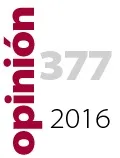IMF Reform: What has Been Achieved and What Does it Mean?

D.L.: B-8439-2012
It took a little over five years to complete, but on Friday 18 December 2015, the US Senate passed a bill accepting a revision to the Articles of Agreement of the International Monetary Fund (IMF) granting China, India, Brazil and other emerging economies more voting power. Four significant changes will now take place, boosting the capacity of the IMF to respond to future crises, but potentially ending 70 years of OECD-domination of its governance. Is this part of the natural evolution of the IMF, or a more significant change?
In the IMF, countries do not have equal votes, but instead they receive a number of votes calculated on the basis of their share of the global economy and international trade, creating a hierarchy topped by rich states. The five largest members prior to reform – US, Japan, Germany, France and the UK – controlled 37 per cent of the total votes. By comparison, China’s share was only 3.8 per cent. Decisions in the IMF require different thresholds of agreement, 50, 70 or 85 per cent, depending on the issue. Over the last 70 years these figures have changed, but what has remained constant is the veto power of the US to prevent changes taking place against its interests, hence the significance of Senate acquiesce last month.
As of January 2016, six per cent of the votes from ‘over-represented countries’ have been reallocated to ‘emerging economies’, with the major losers being many Western European states, Canada and Saudi Arabia, and the major winners being China, Brazil and India. On face value, this appears to be a demotion of the old world and the accommodation of the rising power of the 21st century. Back in 2010, FRIDE researcher Richard Gowan commented that it was a ‘high-odds bet on reforming multilateralism, but Washington is largely gambling with European assets’. The EU28 is worse off after the change; its collective votes are reduced from 32.2 per cent to 29.6 per cent. However, four of the ten states receiving the largest gains are OECD members (Korea, Mexico, Spain and Ireland) and two others (Turkey and Singapore) are aligned to Western institutions. Brazil and India gain roughly one-sixth reallocated votes, but as working democracies should be treated differently to Russia or China. Indeed, China is the elephant in the room, but its incorporation into the IMF goes beyond elevating its voting share; deputy Managing Director Min Zhu is Chinese and from October 2016, the Chinese Renminbi will be incorporated as the fifth currency determining the value of Special Drawing Rights (SDRs), the accounting currency used by the IMF.
The daily running of the IMF is handled by the Executive Board, comprised of the Managing Direction (currently Christine Lagarde) and 24 Executive Directors. The votes allocated to the 188 member states are channelled through the Executive Directors, meaning while some states are represented directly, others form groups where one member speaks and votes on behalf of all. Prior to reform, the US, Japan, Germany, France and the UK enjoyed the privilege of directly appointed seats, in contrast to the other 19 who were elected. In future, all 24 seats will be elected, but for the biggest states it will be simply a formality. More significant is the third change, which was the substitution of two European Executive Directors for non-Europeans. The Dutch and the Belgians now rotate a seat between them instead of occupying one each, while Austria has ceded its seat to Turkey.
What did Europeans get in return for these reforms? The IMF is capitalised by its members’ deposits or ‘quotas’, which in turn determine voting power. The fourth element of reform is a doubling of reserves paid for by increased contributions from 238.5bn SDR to 477bn SDR (roughly $660bn). This recapitalisation is partly necessary because of the IMF’s enormous loans to European states mired in the euro zone crisis, including €85bn in loans to Greece, Ireland and Portugal and $35bn of credit (standby agreements) to Romania, Hungary and Latvia. Not only have the adjustment costs of the euro zone crisis been transferred to the IMF, but also proportionally more of the recapitalisation comes from emerging economies.
The US has ceded power to challengers in the past, such as Japan, albeit a country with no military capability and an American security guarantee. This time, the challengers are more numerous but also more diverse; Russian and Chinese preoccupation with US military power differs from that of Brazil, India or South Africa. Prolonged exclusion from influence in the IMF encouraged them to design alternatives. China’s $100bn capitalisation of the Asian International Infrastructure Bank (AIIB) and the $50bn capitalisation of the BRICS New Development Bank highlight their intention to build Bretton Woods Institutions rivals. G. John Ikenberry has long argued that bringing rising powers into the liberal economic system serves as a basis for sustained peace. The historian Paul Kennedy points out that the IMF was originally as much an institution to prevent war as the UN Security Council. In this light, these reforms can be seen as part of its core mandate.